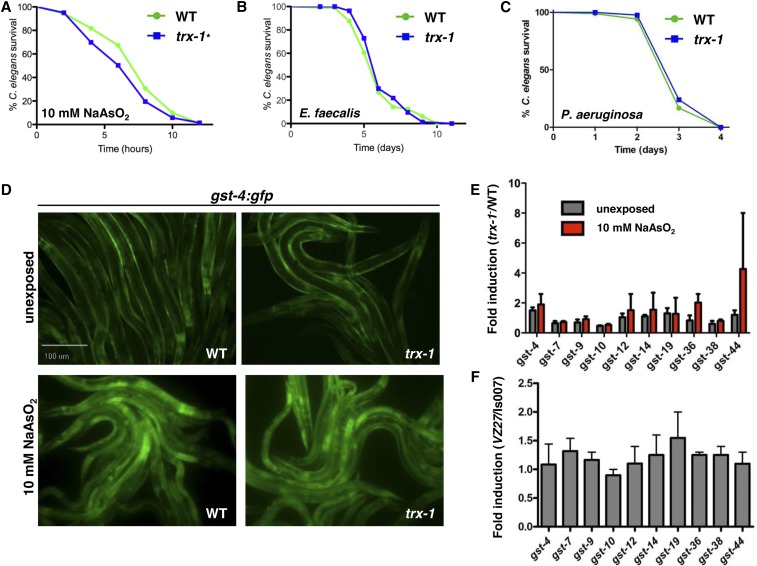Figure 5.
Loss of trx-1 does not promote previously characterized SKN-1-dependent protective responses. (A–C) Resistance to several stressors, including (A) 10 mM sodium arsenite, (B) E. faecalis infection, and (C) P. aeruginosa infection was examined. trx-1 mutants were mildly sensitive to oxidative stress induced by sodium arsenite (P-value = 0.02). Loss of trx-1 did not significantly alter the ability to resist either pathogen infection (P-value = 0.3261 and P-value = 0.1527, respectively). (D) Fluorescence microscopy was used to analyze gst-4::gfp expression in wild-type and trx-1 mutant animals with (bottom) and without (top) 5 hr of exposure to 10 mM sodium arsenite. gst-4 expression was not induced in the intestine of trx-1 mutants as compared to wild type. Worms were visualized using a 10× objective. (E) qRT-PCR was used to determine the fold change in SKN-1-dependent gene expression in trx-1 mutants (as compared to wild-type animals) with (red bars) and without (black bars) 5 hr of exposure to 10 mM sodium arsenite. Expression of SKN-1-dependent genes did not significantly change in trx-1 mutants, regardless of stress. (F) qRT-PCR was used to determine the fold change in SKN-1-dependent gene expression in trx-1;skn-1b/c::gfp (VZ27) animals as compared to skn-1b/c::gfp (Is007) control animals. The expression of SKN-1-dependent genes did not significantly change upon the loss of trx-1 in the skn-1b/c::gfp parent background. The average gene expression of biological triplicates is shown, and the error bars represent SEM.

